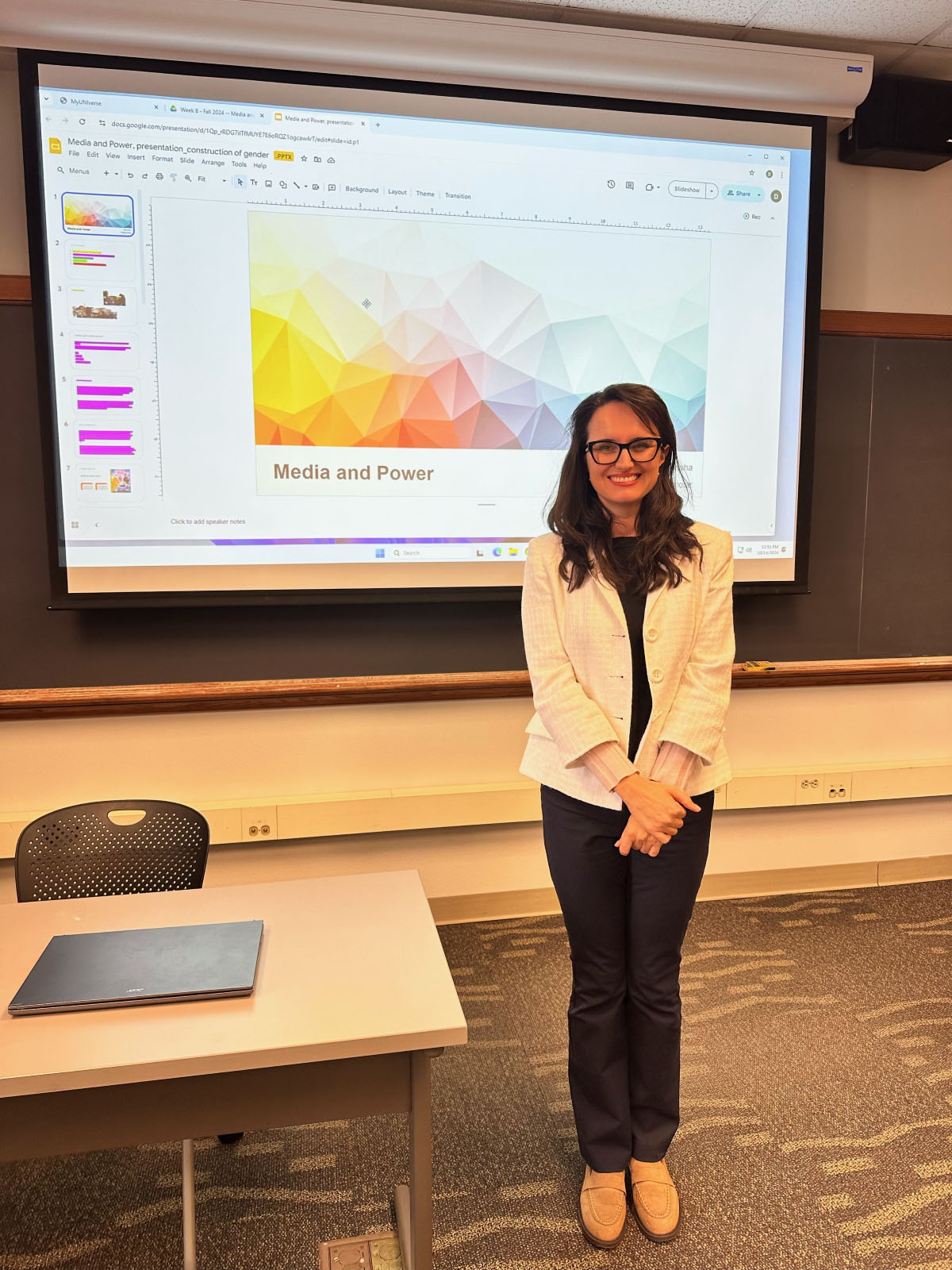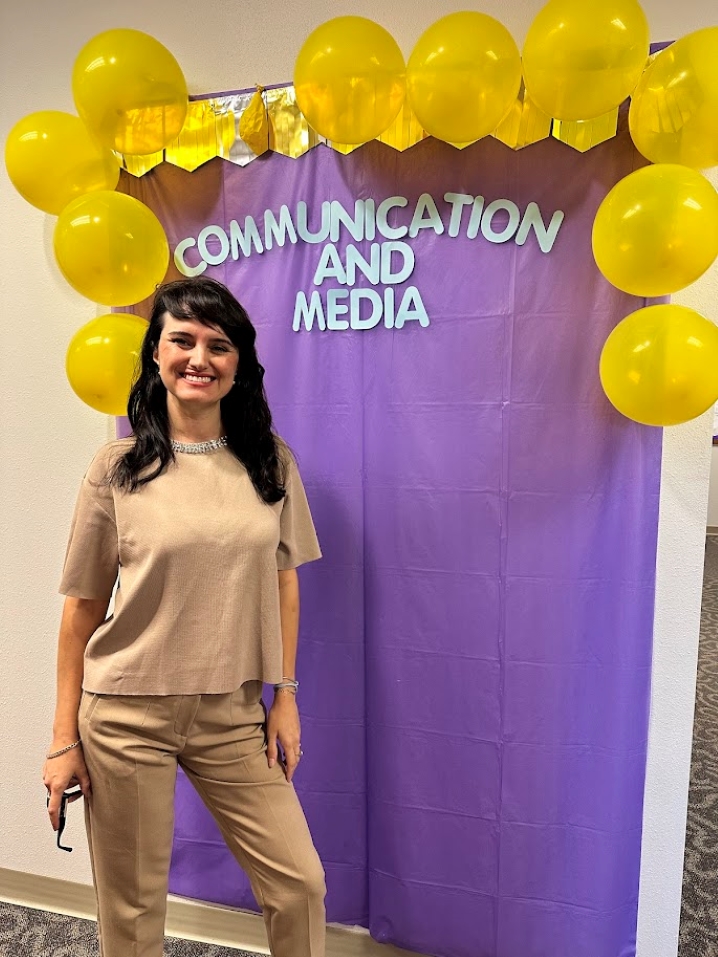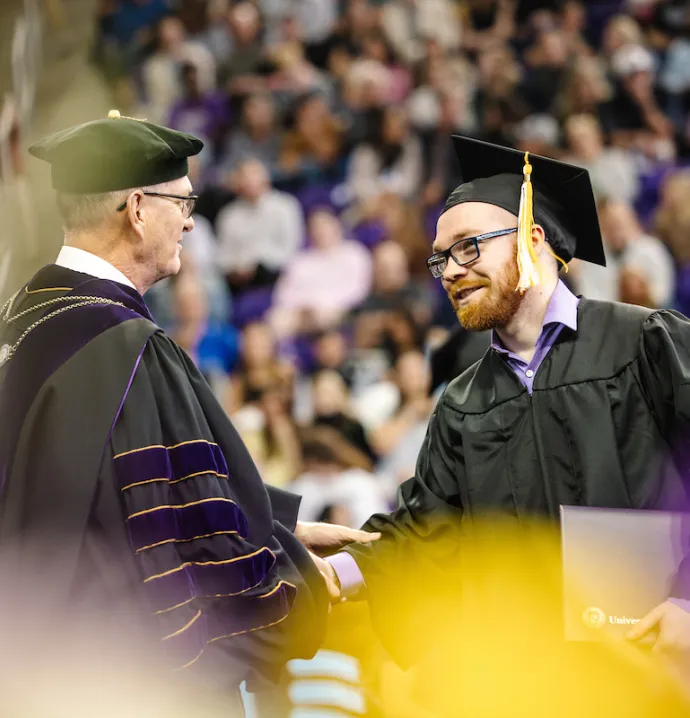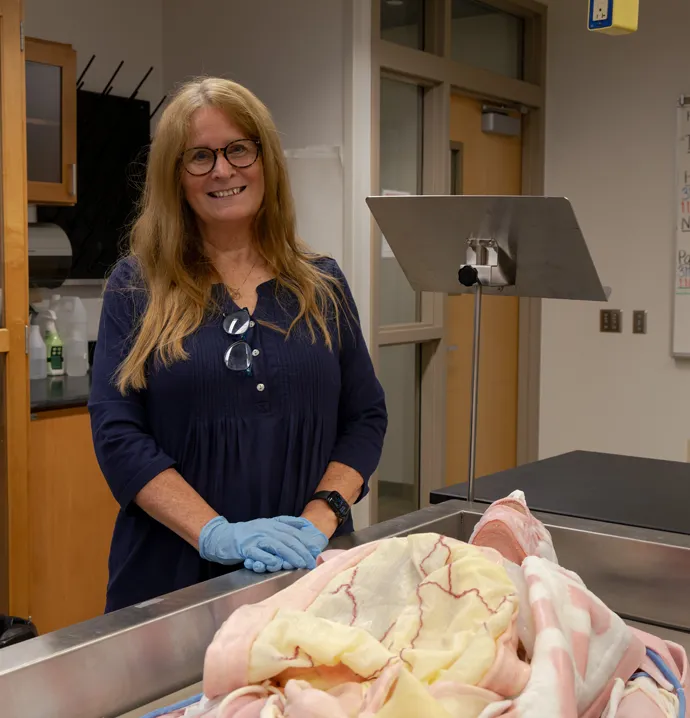Journalism experience leads Kosovo native to UNI as Fulbright Scholar-in-Residence
Journalism experience leads Kosovo native to UNI as Fulbright Scholar-in-Residence
Misinformation in the media is not just a problem in the United States — it’s a global issue, and one that Arta Berisha, UNI’s first-ever visiting Fulbright Scholar-in-Residence, is passionate about.

“I want to improve journalism, first in my home country, but then I see that, of course, this problem isn’t only in Kosovo,” Berisha explained. “It’s a broader issue because of all these changes happening with social media, with the internet, with truth and fake news.”
Berisha began her career as a TV journalist in Kosovo, covering political issues beginning with the independence of her home country, Kosovo, in 2008. She started teaching in her home country a few years later, often encouraging discussions about journalism standards and principles, comparing TV news stories with online-only media. As a traditional journalist, Berisha has observed many issues with online-only news media that are in many cases published without a byline and never updated or corrected.
Berisha took this conversation one step further when she began the Truth Online project in 2018. She conducted 12 content analyses of online-only news media over the course of six months and interviewed journalists who work for traditional media to talk about the findings and the new path journalism is taking. She discovered many cases of furthering misinformation and disinformation. Now she is taking that knowledge and experience and using it to benefit the UNI community.
“Journalism is my passion, alongside my research,” said Berisha. “I still do the craft myself as a freelancer. And this passion brought me to UNI.”
Currently, Berisha is working toward her PhD, focusing on the impact of digital technologies and social media on the quality of journalism.
Berisha came from Kosovo to UNI campus in August, where she will remain for the duration of the 2024-25 academic year. But this isn’t Berisha’s first time at UNI. She was here back in 2019 as a Fulbright visiting researcher. During that six-month visit, she focused on developing a curriculum about fake news and the media.
After Berisha left the U.S., Bettina Fabos, professor emeritus of interactive digital studies, began working on an open educational resource textbook alongside Chris Martin and Catherine Palczewski to be used for the Media and Power class. Although most of the textbook is already written, the “Construction of Truth” module is still being composed. This module is meant to help students understand how to navigate the current climate of fake news.
Fabos thought Berisha would be the perfect person to work on this module with her, so she submitted a Fulbright grant to bring Berisha back to UNI campus.
“Because the textbook is a free open educational resource, Arta can continue to build upon it, translate it into Albanian, fill it with examples from the Balkan region and create one of the first media literacy texts for that part of the world,” said Fabos.
For years after her first trip to UNI, Berisha dreamed of returning to Cedar Falls to visit, but the trip was never quite made. When she was invited back as a Fulbright Scholar-in-Residence, she knew she wanted to accept the opportunity. The problem was just the logistics of moving across the world as a family of four. Berisha and her husband have an eight-year-old son and two-year-old daughter.
“The decision to move for a year with two kids and my husband, who is also a university professor, was tough,” said Berisha. “A decision to accept and to go was made right away. We wanted to do this. But then we have to figure out how to make this work for our family.”
While she is here, Berisha is co-teaching a class with Assistant Adjunct Professor David O’Shields in the Department of Communication and Media and working on adapting the accompanying “Media and Power” handbook for Balkan audiences. Berisha is also working closely with the Jacobson Center for Comprehensive Literacy, helping them create a media literacy summit that will take place in the spring. This summit will assist the center in understanding the role it could play in media literacy research and learning opportunities for teachers.





